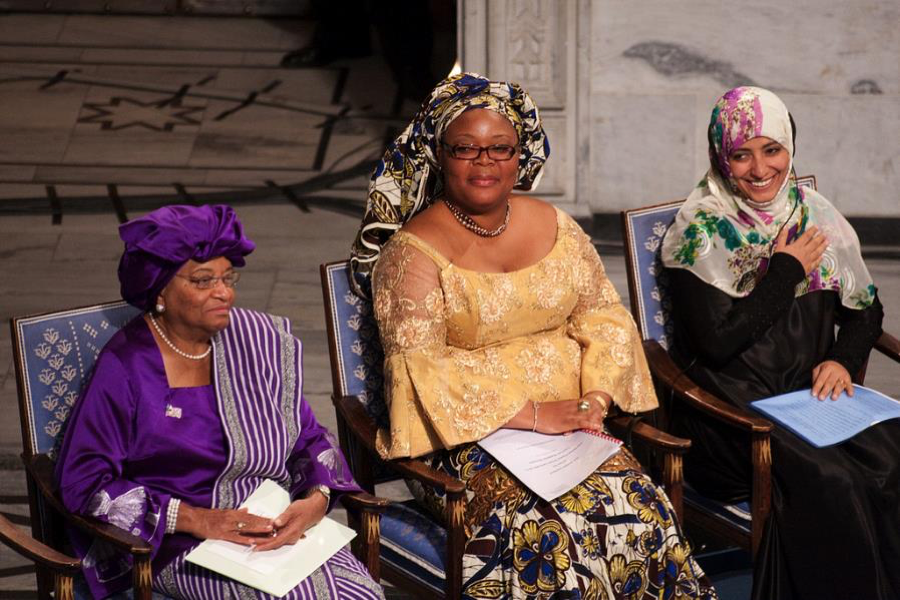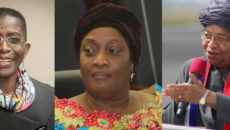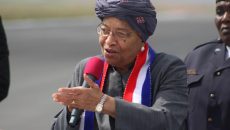The world over is calling for Aung San Suu Kyi to be stripped of her Nobel Peace Prize following her silence and, then, denial of the ethnic cleansing of the Rohingya in own Myanmar. Her statements denying the violence and then labeling it as fake news shocked peace lovers around the globe, leaving their illusions about modern-day sheroes permanently shattered.
What does this moment tell us: the Nobel Peace Prize is a gimmick; women leaders are merely politicians; and, the international community can be inept in stopping genocide.
For me, the moment the Nobel Peace Prize was taken off the pedestal was when it was awarded to Barack Obama, a year after he was elected to the office of the US President. What for? For giving hope to the world.
While we all adored and admired Obama for his seeming sincerity and eloquence, how could the Nobel be awarded for lack of actual accomplishment? Since then, the award has attracted skepticism and resentment.
A few weeks ago, I hosted a movie night at my apartment on Randall Street to celebrate Malala Yousafzai’s acceptance to Oxford by showing He Named Me Malala. I was so proud of hailing from the same country as Malala, the world’s youngest Nobel Peace Prize recipient.
Surprisingly, I found myself embroiled in strange conversations with fellow Pakistanis: the international community ‘made’ Malala by conferring the prize on her; why was she made famous and not the other girls; she didn’t even write that stuff herself, etc. I was a little dumbfounded even though I know that Malala has a hate following in her own country. I concluded that the international prestige that goes with the Prize can be resented by a public that is denied basic rights of a safe, just society.
Having lived in Monrovia for almost 15 years, I am also familiar with how the public feels about international prizes and accolades. Liberia elected Africa’s first female president. Ellen Johnson Sirleaf commands great respect and awe for her qualifications and degrees (Harvard), for her stints at UNDP and the World Bank.
She is seen as a highly accomplished person who participated in her country’s politics and revival in the post-war years. Then, she was conferred with the Nobel Peace Prize smack in the middle of her narrow election to a second term. Critics saw it as interference. Since 2011, Sirleaf’s star has steadily diminished and, her leadership is equated with corruption, nepotism, and even despotism.
She may have been given international recognition for supporting women’s rights but critics and women’s rights organizations would not give her administration high marks for improving the plight of Liberian women. Moreover, for nearly every other issue – be it land rights or excess of government officials or corruption scandals or access to basic services – the track record is poor. One often wonders, what is the political and moral commitment of this government to a progressive future? In this light, the Nobel Peace Prize is merely seen as the world’s projection – they want to award themselves for what they think are their achievements.
A long-term resident of Monrovia, I can confirm corruption permeates all sectors. In fact, it is so blatant one wonders whether the president’s very office is immune itself. My partner has said, “She’s an old Ma. She doesn’t need wealth. No way!†Is it just because she’s a lady that we cannot fathom her just as a regular politician? Or is it the Nobel Peace Prize effect?
Are women leaders seen in different light, especially non-Western women leaders? Why can’t they just be regular politicians? Ellen Johnson Sirleaf is not mother-prophet but a politician who surrounded herself with close associates, friends, and relatives to run her administration. She is seen as the Iron Lady, not for cracking down on corruption but doing her will.
That it has taken so long for the international press and mainstream news to take note of the genocide of the Rohingya and, to begin to question Aung San Suu Kyi’s silence goes to show the blinding effect of the Nobel.
Not everyone who is awarded the Prize has the moral stature of Mother Theresa (and even her legacy is tinged with controversy). And then, one may ask, what is the point of that medal and the fuss surrounding it? Who is it meant to be awarded and in defiance of whom? Does it sow seeds of resentment and conspiracy? Or, is it a desire to bask in the idea that despite a world full of conflict, there are some heroes and sheroes fighting the good fight?
The harrowing scenes of the Rohingya fleeing Myanmar by foot: old and weak grandparents being carried across shoulders, parents wading through mud and water to escape slaughter, brought back images of the Partition of India to my partner. He’s from India and I’m from Pakistan. We both agree the Partition was a historical tragedy.
“Can’t believe the same thing is happening all over again,†my partner remarked.
And the world looks on, incredulous of this genocide, happening under the nose of an untouchable Nobel Peace Prize winner!
Featured photo by Leif Riksheim



